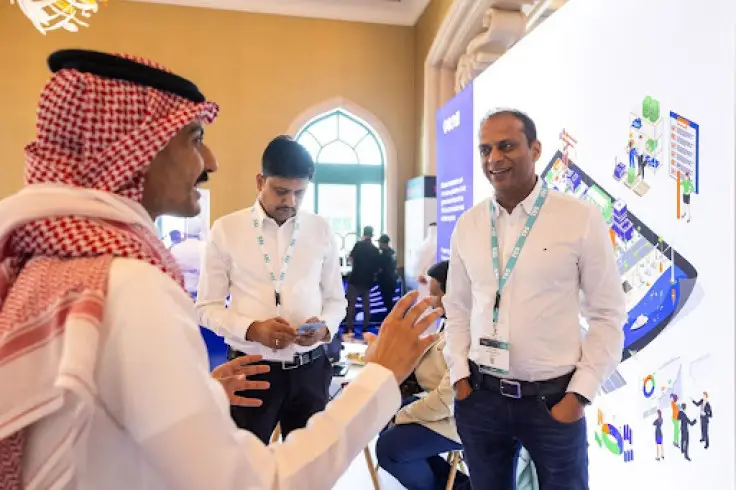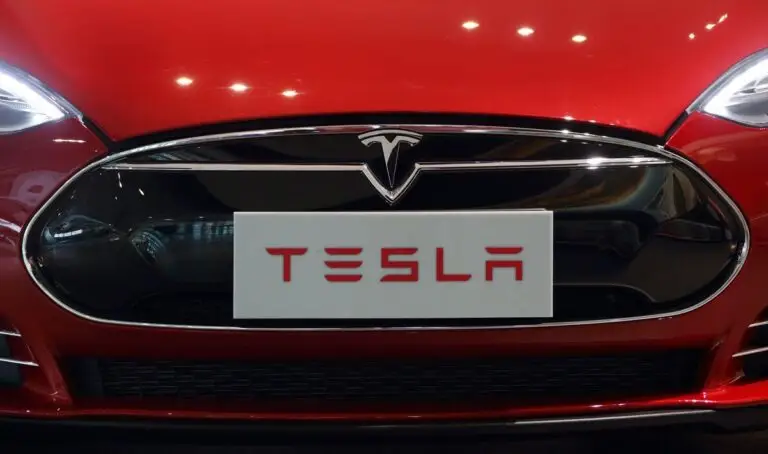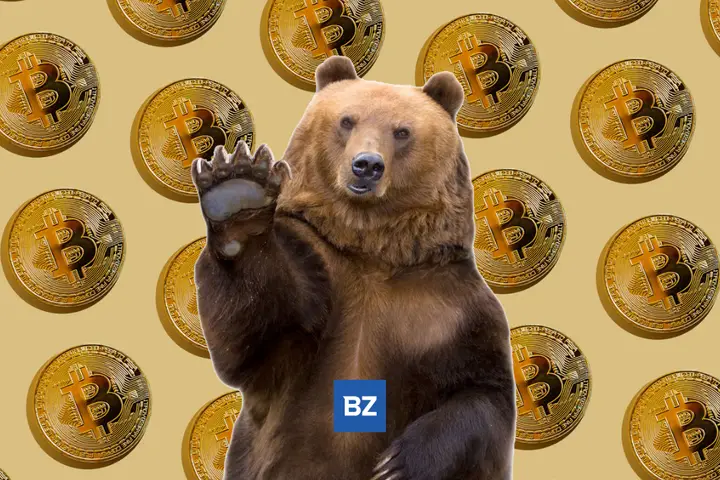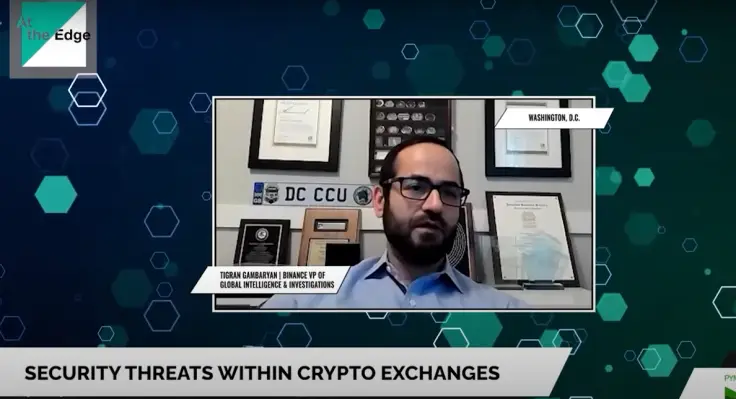The Secrets To Launching A Start-Up From Five Founders Who’ve Scaled
Share to Facebook Share to Twitter Share to Linkedin When I went to college in the early 1990s—long before the iPhone, internet, social media, and OpenAI—no one really aspired to be a “start-up founder”, at least not the way that we think of them today. Back then, university graduates with an entrepreneurial, type-A mindset mostly became corporate lawyers, bankers, or doctors, or, at best, a big wig CEO. The rest of us who never saw that kind of life for ourselves usually became teachers, scientists, artists, or (gasp!) writers. Barely two decades ago, few college graduates left school intending to be a “start-up founder”. Now, … [+] millions do. Much has changed across the start-up landscape since. Tech can take a lot of credit for those transformations, reducing the age barrier to entry, hyper-driving time to liquidity, minting dozens of celebrity billionaires under 30, and making it perfectly acceptable to dress down the C-suite in Crocs and a Jimi Hendrix tee shirt. Billions in venture capital sloshing around haven’t hurt either. Yet, more generationally profound has been the extent to which raising a Series D round is now almost as cool as being Taylor Swift’s drummer. Not surprisingly, many twenty-somethings and soon-to-be-graduates I speak with today are hellbent to launch their own start-up, sprint towards an IPO, and retire early versus growing their 401k the old-fashioned way. The lionization of start-up culture has transformed being a founder into ‘dream job’ category. But … [+] that doesn’t tell the whole story. There are perils to over-celebritizing modern start-up culture, however. In more than eight years as a sometimes-writer about entrepreneurship while a contributor at Forbes, I’ve interviewed dozens of founders as they were getting off the ground: from skinny jeans and travel apps to ‘Brotox’ and boxed wine. Some were just bootstrapping themselves up with personal savings when I first met them. Others had already raised millions. Regardless of their original runways, many are no longer around or, at best, a shadow of their original vision—undone by faulty optics, poor product-market fit, “puppy-squirrel” execution, or simply taking off too hot. Google Chrome Deadline 72 Hours To Update Or Delete Your Browser The Fed Quietly ‘Admits’ Gold Is Replacing The Dollar As Collapse ‘Fear’ Predicted To Trigger A $15.7 Trillion ETF Bitcoin Price Flip Apple Loop iPhone 16 Pro Details iOS 18 s AI Plans iPhone 14 Pro Special Offer A few scaled beyond their founders’ expectations, however, and their trajectories have been exhilarating to follow. So, with all the electricity and bluster around America’s next great entrepreneurial frontier, I thought it would be both timely and philanthropic to give a perch to five start-ups that have already scaled successfully, and find out from their founders firsthand what it takes to build something from nothing, stay relevant over time, and manifest the impossible from the other side crazy. So, here goes Gen Z. Class is in session. Rhone Founder and CEO, Nate Checketts Company: Rhone Founder: Nate Checketts (age 41) Category: Apparel I first met Nate Checketts shortly after Rhone’s first year in business back in 2018. As a life-long addict of high-speed endurance sports and the commonly male mantra, “more pain, more gain”, I had an affinity for Checketts’ brand from the jump . Defined by sleek lines and a distinct athlete-meets-street vibe, Rhone looked like a sure thing to hit another upscale athleisure vein like Under Armour or Lululemon already had, yet with more humility and fewer celebrity buttocks. Today, Rhone is a retail staple at dozens of high-end wellness resorts across the country, like the renowned, 5-star Canyon Ranch, as well as sold at national retailers like Nordstrom’s and Bloomingdales. Their highly anticipated women’s line finally launched in May. Which came first: Wanting to be an entrepreneur and start a company? Or having an idea that could make a great a start-up? NC: For me it was definitely having an idea for a company. If I’m honest with myself, I’ve always just been wired to be an entrepreneur since I was a kid—always inspired by big thinkers who created something that didn’t exist before. I wasn’t even really attracted to the business aspect until much later—it was more the idea, and the innovation that excited me. If you asked me when I was 10 years old what I wanted to be when I grew up, I would have told you I wanted to be an inventor. And, in many ways, that’s what entrepreneurship is all about. Rhone’s street-chic athleisure vibe was a sure thing on the heels of the success of UnderArmour and … [+] LuluLemon What’s more important: How well you make the thing that you do? Or how well you manage the people who make it? NC: Ultimately, it’s both, which I get is kind of a cop-out answer, but hear me out. The quality of what you make in our business (apparel) is paramount. We do not cut corners because if we do our customer knows it and we risk losing that customer forever. But the truth is that you can’t scale any process unless you have a team that’s committed to the same standards you are. We talk internally as a leadership team often about HIGH standards and HIGH trust. If you do not take care of your team, but you have high standards, then no one wants to work with you. If you take care of your team, but you lower your standards, then you get run over and produce a poor product. You need both to work in harmony together to be successful. You’re the newest judge on Shark Tank. Five contestants are about to pitch you the next billion-dollar idea. Based on everything you’ve learned as an entrepreneur, what’s the most important thing you’re looking for in them? NC: Do they have a history or pattern of ‘stick-to-it-iveness’. Ultimately, entrepreneurs who succeed do so because they choose not to give up. Most great companies do not start out being successful and, if they do, they don’t stay that way forever. Being a start-up founder requires adaptation, quick reactions, commitment, and most of all, a level of mental fortitude unlike any other job. Would you rather IPO in 5 years with someone else’s money or in 15 with your own (revenues)? NC: This is such an easy question for me now with hindsight. I’m not sure the goal is ever to IPO. The goal should be building the best company you can, no matter how long it takes to do that the right way. Outside investment capital with the right partners can accelerate that journey. But what matters most is that you stay true to who you and your company are. Don’t take shortcuts to get there. That always costs you in the long run. Most start-ups fail because they try to scale too fast and get out ahead of their skis. What’s the most important piece of advice you’d give an aspiring entrepreneur about playing the long game? NC: Most start-ups fail because they run out of money. No matter what you read or hear, starting a business is just really hard. So, unless you are independently wealthy, you usually have to figure out the trade off between speed to market and giving up a piece of your company to have outside capital to scale. As a society we have often glorified the entrepreneurs (mostly tech) who scale rapidly and disrupt industries. This, of course, can happen, and it’s incredible to watch when it actually does. But you’re more likely to win the Powerball lottery than create a rapidly scaling unicorn. Most great athletes are not born. They become great through consistent hard work and dedication to their craft. Most companies become great the same way—through consistency, dedication, and effort. Originally designed exclusively for men, Rhone’s women’s line finally launched in May What’s the mistake or miscalculation you regret most that you wish you had back? NC: We had a great opportunity to launch a women’s line earlier in Rhone’s life. It was such a great opportunity, but we weren’t ready for it, and I regret not acting on it sooner. Fortunately, now, as a company, we are in a much stronger place, with more established systems, stronger talent, a better go to market strategy, and the women’s lines that our team has created is so beautiful I could not be more excited. So sometimes, what you think is a mistake in the moment, is really just a matter of timing. Who’s your role model and why? NC: I have been blessed to have many role models in my life. But without question the people I look to most often in terms of a pattern to follow are my parents. They are both gifted in so many ways, but their dedication to what matters most and doing what’s right has created a clear roadmap for me to follow and that has been the greatest gift they have given me. You have a pencil and a piece of paper just large enough to write fifteen words on it. What ultimate pearl of wisdom do you give to the entrepreneur who’s about to start the company that will stop global climate change? NC: Quoting Winston Churchill, “Remember These are Great Days” and “Never, Never, Never Give Up!” Pendry Co-Founder and Creative Director, Mike Fuerstman Company: Pendry Hotels & Resorts Founder: Mike Fuerstman (age 40) Category: Hospitality Born into a hospitality family (Mike’s father Alan founded Montage Hotels & Resorts in Laguna Beach, CA in 2001), Fuerstman could have easily taken the cushy road to the hotel board room the way most heirs of family businesses do. Mike elected to do his own thing instead, co-founding a mobile social media platform called SocialMonkey, and then working at a start-up that sold hotel-style safes to college students. Both companies failed to scale. Yet, those experiences taught the Fuerstman the tight ropes and hard knocks of entrepreneurship, how to find brand market fit, and, most importantly, how to lead a company instead of inheriting one. Out of those lessons Pendry Hotels & Resorts was born. Fuerstman’s upstart hospitality brand is now one of the fastest growing luxury hotel brands in America . Which came first: Wanting to be an entrepreneur and start a company? Or having an idea that could make a great a start-up? MF: Wanting to be an entrepreneur—a maker / creator / tinkerer do-er of things—came first for me. For better or worse, I’ve been wired that way for as long as I can remember. I tried, and failed, to start a business multiple times before finally honing in on the right idea, at the right time, with the right infrastructure and talent around me to create success with Pendry. What’s more important: How well you do the thing that you do? Or how well you manage the people who do it? MF: It’s a massive cop out to say that you need both, but for me it’s more important to do one thing exceptionally well, and have a talent or skill that allows for real value creation. A lot of product-oriented founders, which I would consider myself, fit that mold. I am tremendously reliant on my colleagues to help create systems and manage outcomes. The vaulted lobby at Pendry Park City, Utah You’re the newest judge on Shark Tank. Five contestants are about to pitch you the next billion-dollar idea. Based on everything you’ve learned as an entrepreneur, what’s the most important thing you’re looking for in them? MF: Grit—that ability to overcome a relentless onslaught of obstacles—is the most important thing I’d be looking for. There are so many surprises and unforeseen challenges in starting, running, and scaling a business. At times, it’s just overwhelming and crushing. I would want to bet on the person that has the tenacity to confront all the challenges and power through them. It takes a special personality type to just keep going, just keep moving forward, block out the negativity, and focus on solving the most important problem right in front of you, and then move on to the next one, and so on. I want to bet on that type of person. Would you rather IPO in 5 years with someone else’s money or in 15 with your own (revenues)? MF: For me, I’d always bet on myself and my team, and I would prefer to keep my personal net worth tied to the company, and grow both together over the longer timetable. I feel a greater sense of control in channeling my time and effort into our business, as opposed to selling or IPOing and trying to create value elsewhere. Most start-ups fail because they try to scale too fast and get out ahead of their skis. What’s the most important piece of advice you’d give an aspiring entrepreneur about playing the long game? MF: Make sure that you have a clear vision and stick to that vision. Build and scale at the pace that allows you to keep that vision and keep doing the things well that allowed you to find early success in the first place. Don’t panic and don’t run too fast. What’s the mistake or miscalculation you regret most that you wish you had back? MF: When we first launched Pendry we did not lean into the fact that Pendry was associated with Montage. We thought overtly linking both brands together might create confusion for our guests, or somehow create the impression that Pendry was just a watered-down version of Montage. Telling the story of Pendry without Montage was clunky, but we were committed to doing so because we wanted the market (our guests) to feel that Pendry truly had its own unique point of view, and enough substance and style to stand on its own. After launching Pendry, and listening to the travel agent community and our best guests describe the brand back to us, it became clear that the story and positioning of Pendry is inextricably linked to Montage, and, to a degree, to my father and me. The narrative and positioning of Pendry evolved from a standalone upstart brand to the natural extension of hospitality by Montage. Pendry is our next generation contemporary luxury brand. We embraced the lineage of Montage and Pendry of growing together and everything clicked. Our guests just got it. It cost us 6 months or so of re-framing the narrative and poor creative concepts. But we eventually found our voice and a positioning that cuts through the clutter and uniquely resonates. And I am so grateful that we did. Who’s your role model and why? MF: My dad, for many reasons. We wear a lot of relationship hats together. He’s my father, our family patriarch, a friend, a mentor, my business partner, and grandfather to my kids. He’s a great man who is also a normal man, which I’ve always thought was very cool. Most dads don’t do that well. You have a pencil and a piece of paper just large enough to write fifteen words on it. What ultimate pearl of wisdom do you give to the entrepreneur who’s about to start the company that will stop global climate change? MF: Enjoy the ride. Stay humble. Embrace challenge. Stay motivated. Be gracious. Give back. Cotopaxi Co-Founder and CEO, Davis Smith Company: Cotopaxi Founder: Davis Smith (age 45) Category: Apparel Raised in South America by Mormon missionaries, Smith’s vision to eradicate poverty, use business as a force for good, while producing some of the outdoor industry’s best travel and adventure gear using responsibly-made materials appealed to me immediately. He was a refreshing reminder that entrepreneurship is one of the world’s most powerful tools for innovation, empowerment, and lasting change. Last year, Cotopaxi assisted (directly and indirectly) over 477,000 people living in poverty around the world. This year, after a decade as Cotopaxi founder and CEO, Smith decided to move to Brazil to lead another mission for The Church of Jesus Christ of Latter-day Saints, all as he continues to serve in an active role at Cotopaxi as Chairman, and an ambassador for the company’s global impact work. That’s leveraging the power of entrepreneurship at its best. Which came first: Wanting to be an entrepreneur and start a company? Or having an idea that could make a great a start-up? DS: Piranhas, parrots, jungles, and exotic fruits are what most people think of when they hear “South America.” However, growing up in Latin America throughout my youth in the 80s and 90s, “poverty,” was the word that came to mind for me. My parents often had our large family (eight children) volunteering in orphanages, doing service projects, and exploring the wild and raw places we lived. I loved the outdoors, I loved adventure, and I knew that I had a responsibility to use my life in a way that could help others. In the late 90s, I took a two-year break from college to serve as a missionary for my church in Bolivia, the 2nd poorest country in Latin America (falling only behind Haiti). I returned to college with a burning desire to fight poverty. Entrepreneurship was really the furthest thing from my mind. However, after meeting an entrepreneur turned philanthropist that was fighting poverty in the Philippines through entrepreneurial education, my mind began to shift. As a college student, it seemed like my dream job. I wanted to work for his nonprofit, but he instead convinced me that the highest impact way of changing the world would be through entrepreneurship. In 2004, just a few months after my meeting with him, I started my first business. I was not an entrepreneur looking to make a fortune, or an entrepreneur with a burning business idea. I was a socially minded adventurer who dreamed of helping others through entrepreneurship. Cotopaxi has grown into a global leader in recycled and environmentally-responsible outdoor apparel … [+] and adventure gear. What’s more important: How well you make the thing that you do? Or how well you manage the people who make it? DS: Cotopaxi’s origins begin in a small cabin in the Utah mountains. I was living in Brazil when I had the idea to build an outdoor brand with a DO GOOD focus. I pulled together a small team of five that I believed could help me build the brand (several of whom I simply found on LinkedIn and called on Skype with the vision of building this brand together). We all met in Utah for the first time in a cabin where I laid out my vision for the Cotopaxi brand and introduced them to our llama logo. I explained that we couldn’t “win” by competing with the incumbent outdoor brands on technical features. Creating great product was a must, but we would only have success if we had a people-focused mission: External, with a mission to eradicate poverty in our lifetimes, and internal, with a relentless focus on caring for the people on our team. “People” become one of our company’s three core values and is at the heart of everything we do at Cotopaxi. You’re the newest judge on Shark Tank. Five contestants are about to pitch you the next billion-dollar idea. Based on everything you’ve learned as an entrepreneur so far, what’s the most important thing you’re looking for in them? DS: I’m looking for a visionary, someone who has a massive vision that inspires the world. Great entrepreneurs must inspire others (customers, team, investors) and have the emotional intelligence to attract and retain talent. With these two things, even a mediocre idea can be a huge success. Would you rather IPO in 5 years with someone else’s money or in 15 with your own (revenues)? DS: When I started my first business in my early 20s, I was definitely more short-term minded. Now, I’m 45 and fifteen years seems short. My first business (PoolTables.com) turns 20 years old next month and was bootstrapped the whole time. Cotopaxi just turned 10 years old and we raised a lot of capital from institutional investors. One is not better than the other, but they definitely have pros and cons. If you like control, bootstrap your business. If you’re wanting a high-risk, high-reward outcome, raising venture capital can make sense. Cotopaxi’s core mission has always been to find ways to make the world a better place Most start-ups fail because they try to scale too fast and get out ahead of their skis. What’s the most important piece of advice you’d give an aspiring entrepreneur about playing the long game? DS: “Winning” in business most-often comes through consistent and steady progress rather than quick, uneven growth. You only need one business to work for it to become life-changing. A lot of your life’s fulfillment will come through building that singular business, so there’s no rush to build to sell. Enjoy the experience. Build lasting friendships and relationships. Find ways for your business to make the world a better place. This will all take time. What’s the mistake or miscalculation you regret most that you wish you had back? DS: A failed partnership with my cousin is my biggest regret. It’s been over ten years and is still one of the most painful experiences of my life. We had different visions, different goals, and very different personalities. However, co-founding relationships can also work beautifully. At Cotopaxi, my co-founder, Stephan Jacob, and I have worked together for over 10 years now without a single argument. Just know that co-founder relationships are high risk, so be very cautious and intentional when choosing a co-founder. Losing a friend or family member is a very painful loss. Who’s your role model and why? DS: Steve Gibson, a man who used his business success to lift thousands of lives, is my role model. A successful entrepreneur, in 1999 he sold his business and used his wealth to start The Academy for Creating Enterprise, a nonprofit focused on teaching the poor how to successfully start and operate their own businesses. In the last 25 years, they’ve trained over 100,000 people in the Philippines, Latin America, and Africa. Steve is the one who inspired me to become an entrepreneur and showed me how to use my life to serve others. You have a pencil and a piece of paper just large enough to write fifteen words on it. What ultimate pearl of wisdom do you give to the entrepreneur who’s about to start the company that will stop global climate change? DS: Bring others along because, alone, it’ll be lonely. Building with others brings joy and fulfillment. Boxt Founder and CEO, Sarah Puil Company: Boxt Founder: Sarah Puil (age 45) Category: Wine and Spirits I was first introduced to Sarah Puil through a PR friend back in 2021 when she was just starting Boxt, one of the first premium, luxury boxed wines. A few things about her stood out to me immediately. First, she was a woman trailblazing in the wine and spirits space, which historically isn’t that common. She also wasn’t self-funded (hello Casamigos) or the progeny of winemakers and distillers already. Lastly, her fearlessness and tenacity were intoxicating (pun intended). Puil saw an opportunity along a narrow row in a field that wasn’t her wheelhouse, but went all in on it. That takes a certain doggedness not all aspiring entrepreneurs can summon, no matter how fancy the MBA degree. Good ideas, Puil likes to say, rarely sell themselves. Which came first: Wanting to be an entrepreneur and start a company? Or having an idea that could make a great a start-up? SP: The latter. A great idea led me to jump in – a real “I can’t not do this moment”. And then I was off. Frankly being an entrepreneur was not on my radar. What’s more important: How well you make the thing that you do? Or how well you manage the people who make it? SP: They go hand in hand, however the experience that we create through our team for our friends and fans overcomes challenges the product may have. Baseline the product has to be great, but that doesn’t mean it can’t have a flaw. Perfection doesn’t exist, but if you keep advancing it and making it better and you hold the experience of your consumer as the most important thing, they give you permission to figure it out and ride alongside you and cheer you on. You’re the newest judge on Shark Tank. Five contestants are about to pitch you the next billion-dollar idea. Based on everything you’ve learned as an entrepreneur so far, what’s the most important thing you’re looking for in them? SP: Are they going to eat the glass? Will this person figure it out, whatever “it” is? Will they ask for help when they need it? Do they have the gravitational pull that compels me to want to invest my time in them? If I were on Shark Tank, I don’t want to be just a check, I want to be helpful, I want to engage, so it better be someone I want to spend time with. Premium, boxed wine has finally found its place at the gourmet table thanks to Puil’s start-up Boxt. Would you rather IPO in 5 years with someone else’s money or in 15 with your own (revenues)? SP: Rather than focus on IPO, I’d prefer to focus on building a EBITA+ business that is sustainable and then the options are limitless. Most start-ups fail because they try to scale too fast and get out ahead of their skis. What’s the most important piece of advice you’d give an aspiring entrepreneur about playing the long game? SP: Focus, focus, focus. In the case of a consumer product like Boxt, it is so easy to try to own too much territory too fast and that spreads you thin. Own a small concentrated geographic area, create fans, and make sure every single person in that area has heard of your brand and either has tried it and loves it or knows someone who has and wants to. Getting to product market fit is the goal in the early stages, and founder-led sales are critical. That means hands-on so you can have your ear to the ground and learn what is working and what is not and adapt to those things. What’s the mistake or miscalculation you regret most that you wish you had back? SP: We did what I said above. We should have narrowly focused on our hometown and also at the same time as we launched DTC selling of our wines, launched our on-premise wine sales. The groundswell is being built now that we have both sides working together. Who’s your role model and why? SP: My kiddo. She has an openness to all the possibilities that I think are an important piece of being a successful entrepreneur. I have included her since day one and she continually reminds me that there is always a way forward, a “how we can vs. why we can’t”. You have a pencil and a piece of paper just large enough to write fifteen words on it. What ultimate pearl of wisdom do you give to the entrepreneur who’s about to start the company that will stop global climate change? SP: You can’t do it alone. Embrace and empower talent that fills in your gaps. OROS Labs Co-Founder, Michael Markesbery, receiving his NASA scholarship Company: OROS Labs Co-Founder: Michael Markesbery (age 31) Category: Material Technology Markesbery in many ways is an entrepreneurial paradox, which is why I gravitated to him in the first place not only as a founder, but also as a person. On the one hand, he’s dynamic and funny, with a natural bent towards adventure and discovery, which he frequently channels into outdoor pursuits. On the other hand, a dominant part of his brain is also analytical and scientific, with sweet spot for solving complex problems with simple solutions—a skill that eventually got him a NASA scholarship in college. Markesbery eventually combined both sides of his personality to co-founded a start-up called OROS Labs which originally leveraged a proprietary insulation technology into producing better cold-weather activewear. He and his co-founder quickly discovered that the opportunities for their technology were far greater than they initially imagined, however, and they pivoted quickly to take advantage of them. That takes far more flexibility, sensibility, and humility than many entrepreneurs are capable of. And at only 31, those characteristics will serve Markesbery well over the long haul. Which came first: Wanting to be an entrepreneur and start a company? Or having an idea that could make a great a start-up? MM: It all started with a problem that we wanted to solve. I was standing on top of a mountain looking like the Michelin man. I thought there had to be a way to cut the bulk and still stay warm. While looking into ways to solve my problem, Rithvik Venna (Co-founder of OROS Labs) & I learned this insulation challenge existed across many markets: providing heat for buildings and industry accounts half the world’s energy consumption, for example, and we throw out $35B of temperature sensitive medication due to failures in temperature control. The problem was insulation. A new platform of insulation was needed to transform thermal materials and benefit humanity. While in college, I was fortunate to be awarded a scholarship created by the Mercury 7 Astronauts called The Astronaut Scholarship. It was through this scholarship that I learned about aerogel. Aerogel has the lowest thermal conductivity on this planet. It is used by NASA to insulate spacecraft such as the Mars Rovers. It occurred to me if NASA uses aerogel in space, it could also be the perfect insulation on Earth. We launched the company, OROS Labs, to develop the most innovative thermal solutions on the planet, starting with aerogel. What’s more important: How well you make the thing that you do? Or how well you manage the people who make it? MM: In the early days, when it’s just you and maybe a co-founder, it’s about how well you make the thing. Very quickly though, that changes. You start hiring people. The team grows. All of a sudden, how well you manage the team becomes more important. That’s the pivotal moment in an entrepreneur’s career where you transform from a Founder to a CEO. You’re the newest judge on Shark Tank. Five contestants are about to pitch you the next billion-dollar idea. Based on everything you’ve learned as an entrepreneur so far, what’s the most important thing you’re looking for in them? MM: Grit. Solarcore is the most thermally insulating material on earth and has been used by NASA on the Mars … [+] Rovers Would you rather IPO in 5 years with someone else’s money or in 15 with your own (revenues)? MM: It depends on the product, team, and business model. Not every founder is made to take on venture capital. Not every company is meant to IPO. Most start-ups fail because they try to scale too fast and get out ahead of their skis. What’s the most important piece of advice you’d give an aspiring entrepreneur about playing the long game? MM: Make sure you have product-market fit before attempting to scale. What’s the mistake or miscalculation you regret most that you wish you had back? MM: Not prioritizing my health. One of the most important things you can do for your company is focus on your own health. If you are healthy and performing at 100%, you give your company the best shot of doing the same. It’s easy to focus so much on your work that you slip on your health. Don’t. Who’s your role model and why? MM: Rithvik Venna (OROS Labs COO & Co-founder) and I have been fortunate to have many successful individuals serve as role models for us. Joe Flannery, whose current role is Executive Vice President at Topgolf Callaway Brands. Tim Holcomb, Ph.D. Professor and Chair, Department of Entrepreneurship at Miami University. Hap Klopp, Partner HK Consulting (Founder and 20-year CEO of the North Face), Colonel John Burger, Bill Frank, Principal NCT Ventures Fund Management, to name a few. Each of these individuals serve as advisors to Rithvik and me. They each have provided us with insightful guidance and direction. I cannot stress enough the importance of having an advisory board and role models you can lean on when you need guidance and direction. You have a pencil and a piece of paper just large enough to write fifteen words on it. What ultimate pearl of wisdom do you give to the entrepreneur who’s about to start the company that will stop global climate change? MM: There is no silver bullet, only lead bullets. Grit and patience are required. Editorial Standards Print Reprints & Permissions







